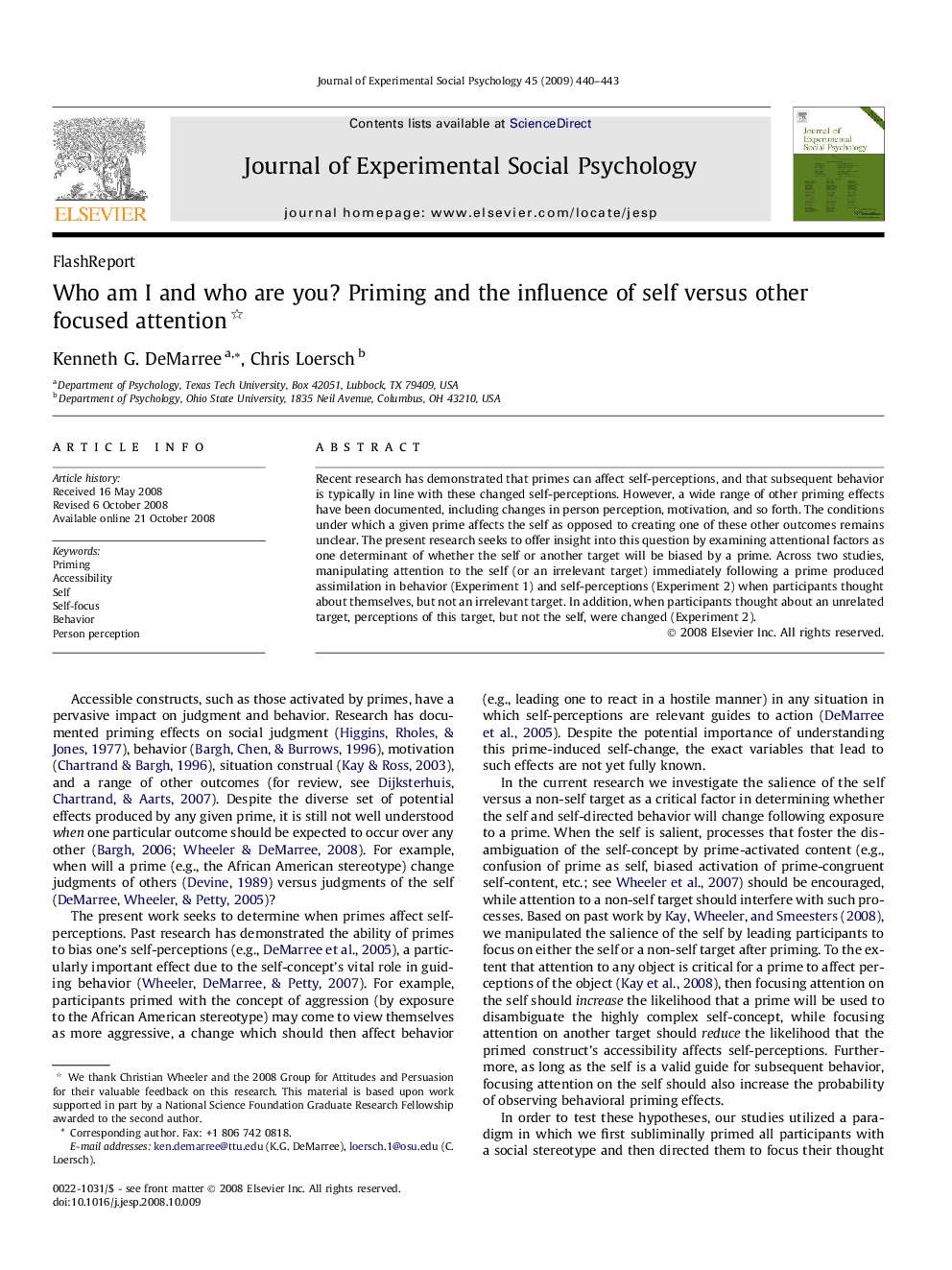| Article ID | Journal | Published Year | Pages | File Type |
|---|---|---|---|---|
| 948810 | Journal of Experimental Social Psychology | 2009 | 4 Pages |
Recent research has demonstrated that primes can affect self-perceptions, and that subsequent behavior is typically in line with these changed self-perceptions. However, a wide range of other priming effects have been documented, including changes in person perception, motivation, and so forth. The conditions under which a given prime affects the self as opposed to creating one of these other outcomes remains unclear. The present research seeks to offer insight into this question by examining attentional factors as one determinant of whether the self or another target will be biased by a prime. Across two studies, manipulating attention to the self (or an irrelevant target) immediately following a prime produced assimilation in behavior (Experiment 1) and self-perceptions (Experiment 2) when participants thought about themselves, but not an irrelevant target. In addition, when participants thought about an unrelated target, perceptions of this target, but not the self, were changed (Experiment 2).
